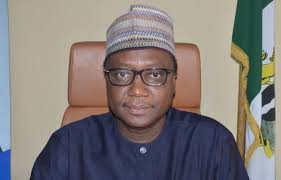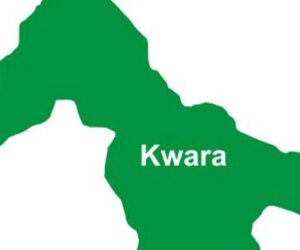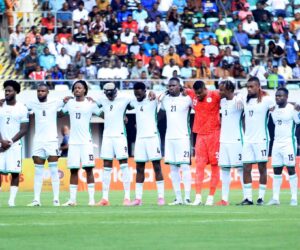Despite widespread criticisms trailing the planned increase in the salaries of political, public, and judicial office holders across the country, the Revenue Mobilisation Allocation and Fiscal Commission (RMAFC) has commenced a review of remuneration packages.
It would be recalled that RMAFC Chairman, Mohammed Shehu, on Monday hinted at the plan to review the earnings of the president and other political office holders, stressing that current salaries are inadequate and unrealistic given the prevailing economic situation.
Shehu said President Bola Tinubu currently earns about N1.5 million monthly, while ministers take home less than N1 million. He noted that these figures have remained unchanged since 2008.
SPONSOR AD
“You are paying the President N1.5 million a month. Everybody believes that it is a joke. You cannot pay a minister less than N1 million per month since 2008 and expect him to put in his best without necessarily being involved in some other things.
“You pay either a CBN governor or a Director-General 10 times more than you pay the president. That is just not right. Or you pay him (the head of an agency) 20 times higher than the Attorney-General of the Federation. That is absolutely not right,” he said.
Following the announcement, opposition parties and socio-political groups, including the Arewa Consultative Forum (ACF) and the Middle Belt Forum (MBF), condemned the move, describing it as provocative, insensitive, selfish, and ill-timed, particularly as millions of Nigerians grapple with rising living costs.
The African Democratic Congress (ADC) urged the federal government to suspend the proposed salary hike, arguing that the push for higher earnings shows a glaring disconnect between the government and the people.
“Proposing such a review when millions of Nigerians are struggling with soaring food inflation, high fuel costs, and an inadequate minimum wage indicates a total disregard for the people,” ADC’s spokesperson, Bolaji Abdullahi, said.
The party stressed that political leaders already enjoy huge allowances, perks, and discretionary funds that far exceed the national minimum wage of N70,000—a figure further weakened by inflation and, in many cases, not even paid regularly.
The African Democratic Congress (ADC) further criticised government officials for insulating themselves from the hardships faced by ordinary citizens, while continually demanding sacrifices from the populace.
The National Secretary of the Coalition of United Political Parties (CUPP), Chief Peter Ameh, condemned the move, describing it as “the RMAFC’s reckless haste in prioritising the greedy appetites of public officials over the desperate needs of the masses.”
He said the absence of transparency regarding the actual earnings of political office holders — including their substantial allowances and perks — continues to fuel public skepticism and mistrust.
Nevertheless, the RMAFC’s Chairman of the Remuneration and Monetisation Committee, Mr. Mohammed Usman, announced at a retreat in Kano that the agency had officially commenced the review process.
This was contained in a statement issued on Thursday by the agency’s Head of Information and Public Relations Unit, Mrs. Maryam Yusuf.
Usman stated that the exercise is vital to strengthening Nigeria’s governance structure, explaining that the review aims to harmonise reports in order to develop a comprehensive framework for remuneration packages of political, public, and judicial office holders nationwide.
“The effort is also a significant move towards the implementation of one of the commission’s core mandates,” he said.
The committee chairman further said the 1999 Constitution, as amended, empowers the commission to determine appropriate remuneration for political, public, and judicial office holders at all levels.
He revealed that the commission had earlier taken steps toward revising the remuneration package to reflect current economic realities.
“The RMAFC carefully considered a wide range of perspectives, including memoranda from stakeholders, public hearings, and ministerial submissions, while also drawing from economic indicators and remuneration practices in other countries,” Usman said.
He clarified that the review process is not solely about figures but also about ensuring sustainability and affordability.
He added that the commission had equally assessed the government’s capacity to implement the reviewed package, with the goal of ensuring that the recommendations remain fair, realistic, and sustainable.
Usman further disclosed that the committee was directed to harmonise the earlier report and subsequent addendum into a single document to provide a clear and comprehensive framework for implementation.
Planned review disappointing, insensitive – Experts
A development expert, Dr. Husseini Abdul, described the planned review of public officers’ remuneration as disappointing, considering the current state of the economy and the severe hardships faced by Nigerians.
He argued that political office holders should not be given any salary increase; instead, they should willingly reduce their earnings.
He added that the move was “insensitive, as many Nigerians are trapped in multi-dimensional poverty with meagre incomes that cannot meet basic needs.”
According to him, the proposal is also “provocative because the average Nigerian already considers political office holders over-pampered,” warning that such action could “inflame passions and precipitate social unrest in a country where inequalities are widening and the middle class has nearly been wiped out.”
Similarly, Otunba Dele Oye, the immediate past President of the Nigerian Association of Chambers of Commerce, Industry, Mines, and Agriculture (NACCIMA), noted that “the timing of the proposed review is wrong,” stressing that “this is bound to send the wrong message to the larger economy.”
Also speaking, Auwal Musa Rafsanjani, Executive Director of the Civil Society Legislative Advocacy Centre (CISLAC), said the review of remuneration at this time is not appropriate.
“Since 1999, when democracy returned, civil society has been at the forefront of agitating and advocating for a real discussion around the fiscal revenue allocation formula in this country. And I think a lot of Nigerians’ attention has been on the Commission, especially when it comes to issues of remuneration.
“Public officers, many Nigerians consider what they take as outrageous. A lot of members of the legislature and numerous political appointees are seen as simply collecting money they don’t deserve. The salary, in many instances, is not even justifiable, even though what they officially declare as earnings is often not what they eventually collect.
“And there’s no justice in this collection. Professors who have served in universities for 30 years earn salaries that are nothing compared to those of councillors or local government chairmen. There must be fairness in addressing these imbalances in the earnings of public officials, especially politicians and political appointees.
“If you look at doctors and other professionals, what they earn is nothing to write home about. There is no motivation, and that is why many of them end up in poverty. Many cannot even pay their children’s school fees. Police officers, after retirement, are unable to feed themselves.
“So, I think there must be justice in the way and manner in which this sharing is done,” Rafsanjani added.
Breakdown of public office holders’ remuneration
A breakdown of the remuneration for public office holders, as obtained by Daily Trust from the Revenue Mobilisation Allocation and Fiscal Commission (RMAFC), shows that the President’s monthly package — including hardship and other allowances — is N1.17 million, bringing his annual remuneration to N14.05 million.
Similarly, the vice president earns N1.01 million monthly and N12.12 million annually.
A senior minister receives N650,136 as monthly remuneration, amounting to N7.8 million annually, while a Minister of State earns N628,056 monthly and N7.53 million annually.
For federal lawmakers, a senator takes home a monthly remuneration of N1.06 million and an annual salary of N12.76 million. A member of the House of Representatives, on the other hand, receives N794,086 monthly and N9.5 million annually.
Ex-Minister: Perks of office far outweigh public officers’ salaries
A former minister, who spoke to Daily Trust on condition of anonymity, said too much attention is placed on the salaries of political office holders, when in reality the perks of office far outweigh both their basic pay and other emoluments.
He explained that the idea of reviewing political office holders’ salaries every 10 years was based on the expectation that they should live above board and not rely on any income outside their legitimate earnings.
“But the truth is, which political office holder, past or present, has ever depended on salary? During our time, the basic salary was around N930,000 per month, but many of us didn’t even know when it was paid, because nobody depended on it.
“Even the allowances people talk about are mostly insignificant compared with the perks of office. Allowances for furniture, entertainment, rent and the like were calculated as a percentage of salary. I honestly can’t recall exactly how they were worked out or paid, because they were not that significant,” he said.
The former minister added that while it is fair to argue that political office holders should earn a living wage, no one can deny that what accrues to them goes far beyond official salaries and allowances.
“I’m not even talking about illegitimate earnings, just the perks of office. But as the saying goes, not everything legal is moral. Perhaps that is why opponents of a salary increase argue that, given today’s realities and the way things work in Nigeria, this may not be the right time to raise the issue,” he said.







